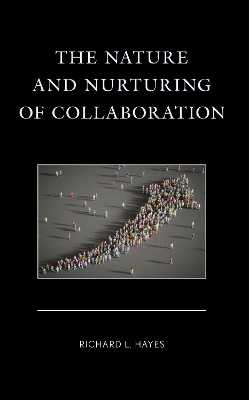
The Nature and Nurturing of Collaboration
Seiten
2024
Lexington Books/Fortress Academic (Verlag)
978-1-6669-5791-4 (ISBN)
Lexington Books/Fortress Academic (Verlag)
978-1-6669-5791-4 (ISBN)
This book tells the wonderous story of human cultural evolution—how the natural forces of biological evolution gave way to the co-evolution of genes and a nurturing culture that gave rise to the unique capacity that enabled humans to dominate the Earth.
Nature and the Nurturing of Collaboration tells the wondrous story of how the natural forces of biological evolution gave way to the co-evolution of genes and a nurturing culture that gave rise to us. Several million years in the making, collaboration is the story of human cultural evolution—who we are, how we came to be this way, and how collaboration enabled humans to dominate the Earth. Through a series of genetic accidents, disruptive climatic events, and changing social condition, humans emerged with a set of "fortunate" adaptations that enabled a general capacity for collaboration. Richard L. Hayes explains how these adaptations enabled them to work as members of a cultural group in acts of collective intentionality. Nurtured through the challenge and support offered by others in close social interaction, these capacities enabled the collaborative process of adjusting behaviors and expectations in arriving at mutually determined solutions to mutually defined problems. How adults can nurture these capacities in children, how organizations can improve members' performance, and how individuals can become better collaborators are discussed in this volume. How building collaborative communities has advanced our mutual understanding across cultures and ensures that collaboration serves the public good offer a tentative end to the story.
Nature and the Nurturing of Collaboration tells the wondrous story of how the natural forces of biological evolution gave way to the co-evolution of genes and a nurturing culture that gave rise to us. Several million years in the making, collaboration is the story of human cultural evolution—who we are, how we came to be this way, and how collaboration enabled humans to dominate the Earth. Through a series of genetic accidents, disruptive climatic events, and changing social condition, humans emerged with a set of "fortunate" adaptations that enabled a general capacity for collaboration. Richard L. Hayes explains how these adaptations enabled them to work as members of a cultural group in acts of collective intentionality. Nurtured through the challenge and support offered by others in close social interaction, these capacities enabled the collaborative process of adjusting behaviors and expectations in arriving at mutually determined solutions to mutually defined problems. How adults can nurture these capacities in children, how organizations can improve members' performance, and how individuals can become better collaborators are discussed in this volume. How building collaborative communities has advanced our mutual understanding across cultures and ensures that collaboration serves the public good offer a tentative end to the story.
Richard L. Hayes is professor emeritus of the University of Georgia and dean emeritus of the University of South Alabama.
| Erscheinungsdatum | 20.04.2024 |
|---|---|
| Sprache | englisch |
| Maße | 160 x 237 mm |
| Gewicht | 485 g |
| Themenwelt | Geisteswissenschaften ► Psychologie ► Allgemeine Psychologie |
| Geisteswissenschaften ► Psychologie ► Sozialpsychologie | |
| Naturwissenschaften ► Biologie ► Evolution | |
| ISBN-10 | 1-6669-5791-7 / 1666957917 |
| ISBN-13 | 978-1-6669-5791-4 / 9781666957914 |
| Zustand | Neuware |
| Informationen gemäß Produktsicherheitsverordnung (GPSR) | |
| Haben Sie eine Frage zum Produkt? |
Mehr entdecken
aus dem Bereich
aus dem Bereich
Techniken der Verhaltenstherapie
Buch (2024)
Julius Beltz GmbH & Co. KG (Verlag)
CHF 48,95


